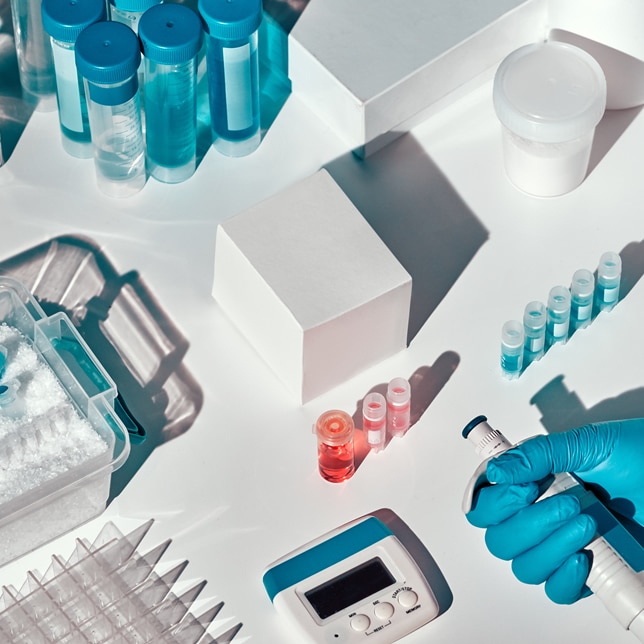DIAGNOSTIC KIT
regulatory services
Norega team has a cumulative experience of more than 50 Years in Regulatory affairs. Over years, our experts have been Behind approvals of breakthrough In Vitro Diagnostic (IVD) Kits & Technologies by helping companies from India and the World with a clear Regulatory Pathway for Successful Launch of their products under Medical Device Rules in India.

What is a
Diagnostic kit
In India, import, manufacturing, sale and distribution of In Vitro Diagnostic (IVD) Medical Devices / Reagents are regulated under the provisions of Medical Device Rules 2017.
In-Vitro Diagnostic (IVDs) are defined as substances intended to be used outside used human or animal bodies for the diagnosis of disease or disorders in human beings or animals. IVDs are considered as “Drugs” as defined under sub-clause (i) of clause (b) of Section 3 of Drugs and Cosmetic Act 1940 and In Vitro Diagnostic Kits that are notified, from time to time, as a device under sub-clause (iv) of clause (b) of section 3 of the Drugs and Cosmetics Act, 1940.
INTRODUCTION TO
Diagnostic kits
There was a time when the concept of medical devices and diagnostics was very little in use in India. Besides, whatever equipment or systems were available, there was no control over the quality aspect and the patients at large had to suffer either because of quality or due to non availability of quality devices to treat various illness. The above difficulties were viewed seriously by the Ministry of Health and Family Welfare, Government of India and it was felt necessary to promulgate a law which would regulate the Diagnostic Kits & Medical devices including the intravenous diagnostic medical devices so that all Indian manufacturers and foreign suppliers can come under the Purview of the Guidelines of the said regulations issued by Central Drugs Standard Control Organisation.
Accordingly, in 2006 Government issued a law through which all types of diagnostic kits and medical devices felt necessary at that time were regulated.A provision was also kept to bring in any other advanced technology Devices and Diagnostics under the government Purview. This definitely helped the country to a large extent to get quality products. The government has been including more and more diagnostic kits under regulation which has helped direct control on the quality products by manufacturers and exporters to India. Over the years it has been felt by the Government that prices of a lot of kits have been going up drastically and sometimes unaffordable to the population at large and the National Pharmaceutical Pricing authority also intervened and regulated the Prices of the Devices.
This expansion of regulations to cover all diagnostic kits has now made it mandatory for registration of devices being sold in the country. The government has also given sufficient time to the Indian Manufacturers as well as Overseas suppliers to adopt such regulations and ensure that the Indian Consumers are assured safe and quality healthcare products.
2017
YEARThe Medical Device Rules, 2017 regulate quality of in-vitro diagnostic kits and notified medical equipment.
4
classes- Class A – Low Risk,
- Class B – Low Moderate Risk,
- Class C – Moderate
- Class D – High risk
Diagnostic Kits whether used In-vitro or In-vivo , either imported in India or manufactured in India for sale and use are now regulated under the New Medical Rules 2017.
DIAGNOSTIC KITS RISK BASED
CLASSIFICATION IN INDIA
RISK BASED CLASSIFICATION
Under the control of Ministry of Health & Family Welfare, The Central Licensing Authority i.e. CDSCO revamped the entire regulatory framework governing import, manufacturing, sale and distribution of existing IVD Kits, Reagents & Medical Devices under the Drugs & Cosmetics Act 1945 & Rules 1940 as well as Medical Device Rules 2017 and various further notifications in these rules have come from time to time.
The rules came into force in January 2018 and the import, manufacturing, sale and distribution of existing In Vitro Diagnostic (IVD) kits/ reagents are regulated by the Central Drugs Standard Control Organization (CDSCO), an agency of the Ministry of Health and Family Welfare under the regulatory provisions of the Drugs & Cosmetics Act 1940 & Rules 1945.
In line with risk based classification of Global Harmonization task Force (GHTF), under the Medical Devices Rules 2017, IN-VITRO DIAGNOSTIC KITS in India are classified into Class A, B, C and D with the risk associated with a device increasing from Class A (Low Risk) to Class D(High Risk).
Sign up for email alerts
Stay current with our latest insights